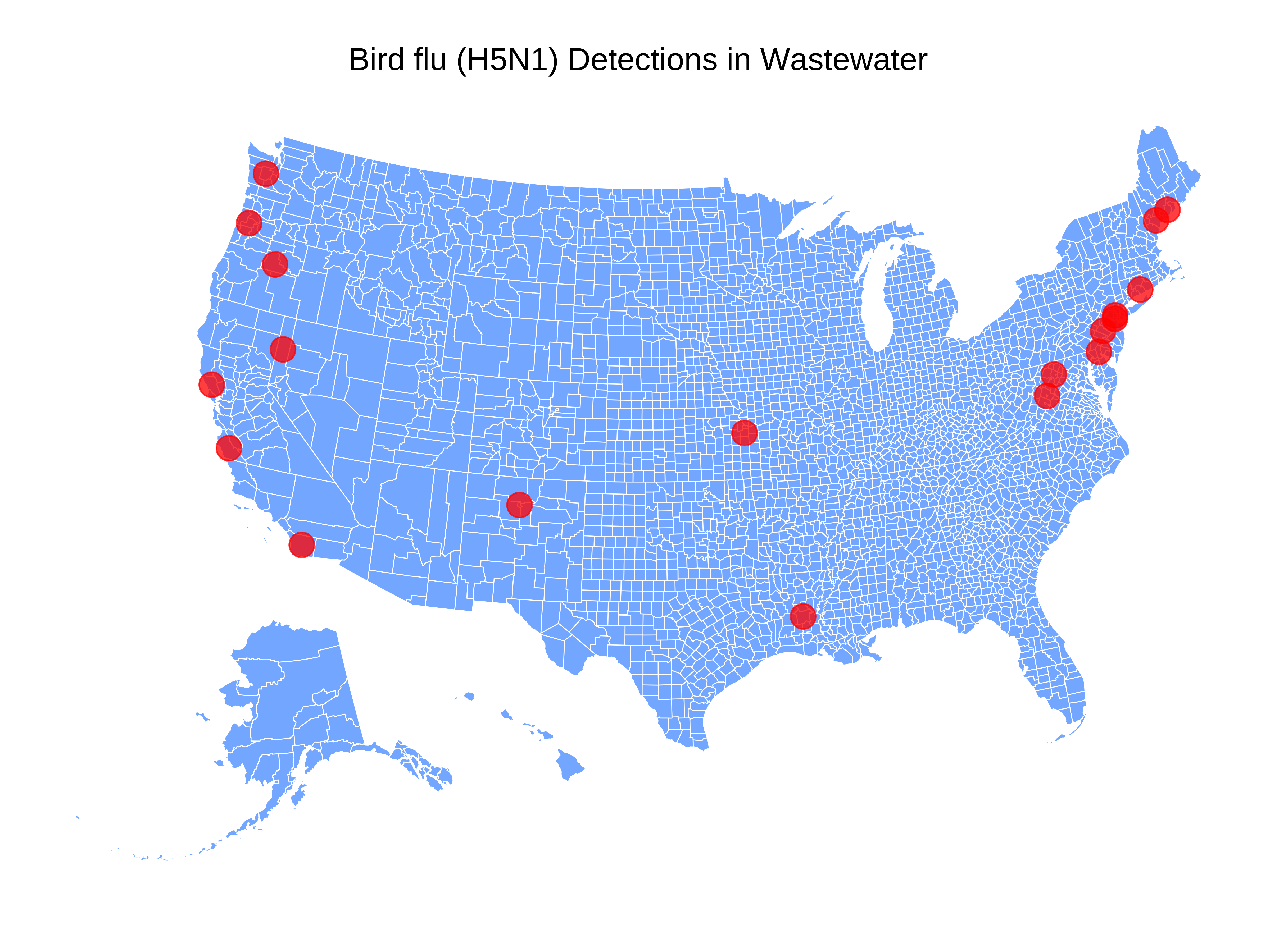At Biobot, we analyze wastewater across the country for various infectious disease pathogens....

Respiratory Virus Risk Reports
Comprehensive Insights for COVID-19, Influenza, and RSV
COVID-19, Influenza, and RSV Wastewater Monitoring in the U.S. | Week of September 23, 2024
Throughout the respiratory season, we analyze wastewater for the presence of respiratory syncytial virus (RSV) and influenza virus (types A and B). Together with COVID-19, these three pathogens are outsized contributors to our seasonal respiratory illness burden. In this data series, we’ll guide you through the wealth of data we’ve gathered from our Biobot Network of national sampling sites, aiming to shed light on emerging trends in respiratory virus activity and community viral load. Our goal is to equip you with information to make informed decisions.
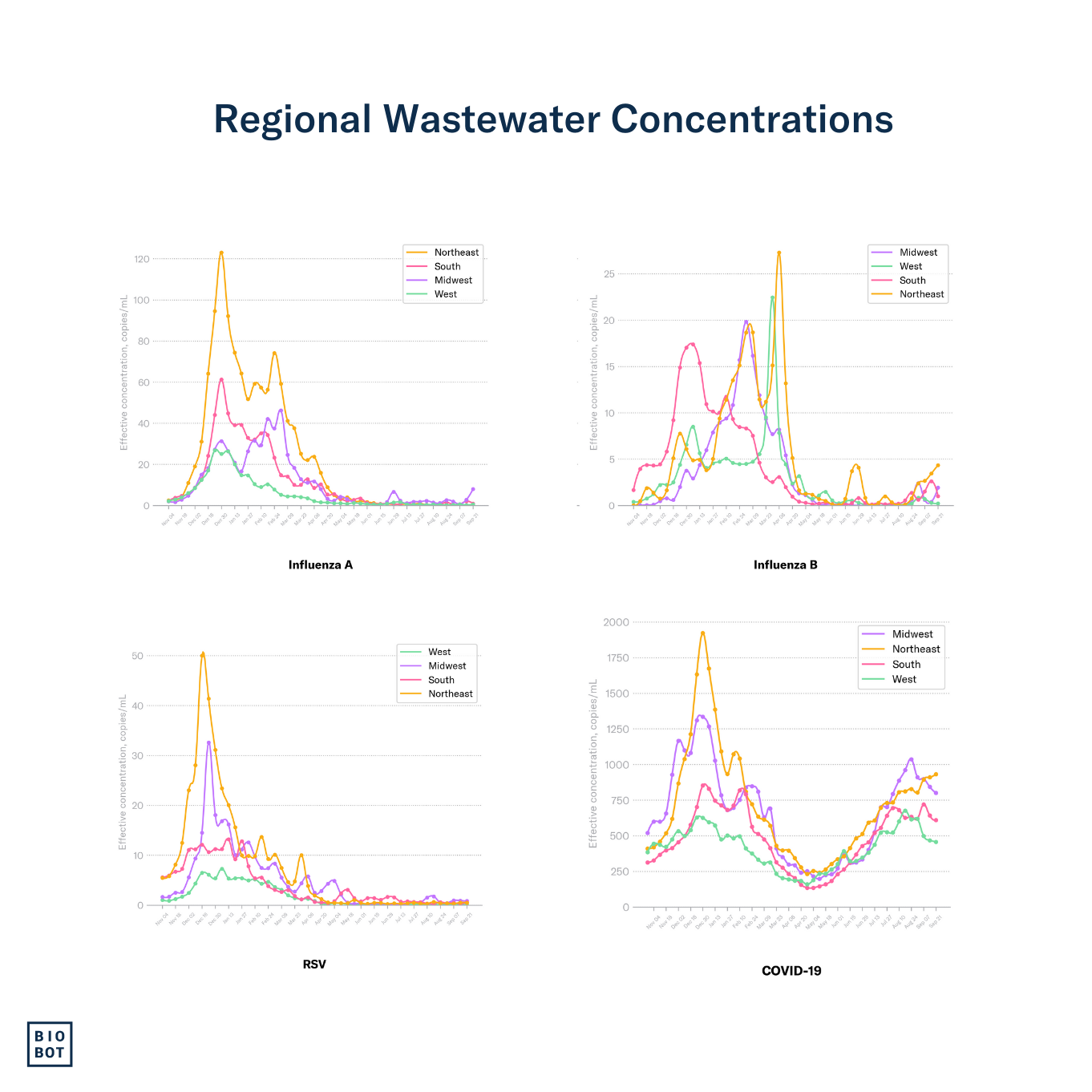
Data Note: Samples are collected from participating locations, and processed by our lab team on a rolling basis. Each point on the figure represents the weekly average concentration, from Sunday – Saturday (corresponding to the MMWR week), aligned to that week’s Saturday.
Contributors

Marisa Donnelly, PhD
Public Health Partnerships Epidemiologist
Previous Risk Reports
Summary: Week of 9/23/24
Biobot’s national wastewater network showed high but declining concentrations of SARS-CoV-2, low concentrations of influenza A and RSV that are starting to increase, and a continued uptick of national influenza B concentrations in week 38. National hospitalization rates for COVID-19 remain elevated, but have continued to decline, currently at 2.8 per 100,000 persons in week 37. National hospitalizations rates for influenza and RSV remain very low — both have less than 0.1 hospitalizations per 100,000 persons through week 37.
The Bottom Line: COVID-19 activity remains elevated across most of the country while influenza A and RSV are still at low levels. Our recommendations to remain healthy are the same as they were in the winter: if you feel unwell, minimize contact with others, consider wearing a mask in crowded areas, and stay current with vaccinations and boosters.
National Outlook
COVID-19
Nationally, SARS-CoV-2 concentrations are elevated but decreasing.
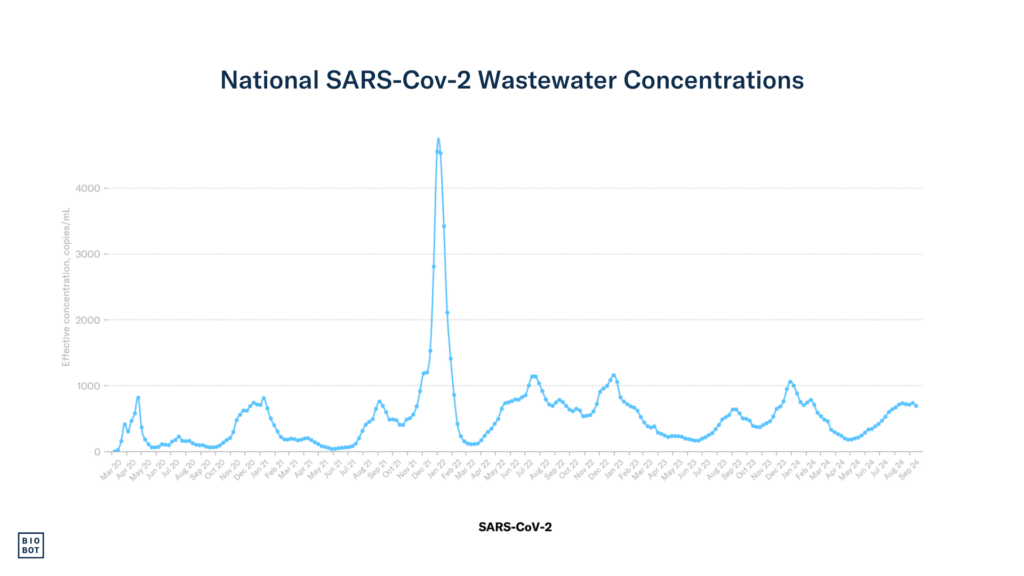
Influenza
Nationally, influenza A concentrations remained very low in week 38 but are starting to increase, mostly driven by increases in the midwest. Influenza B concentrations have increased over the past month, but remain low.
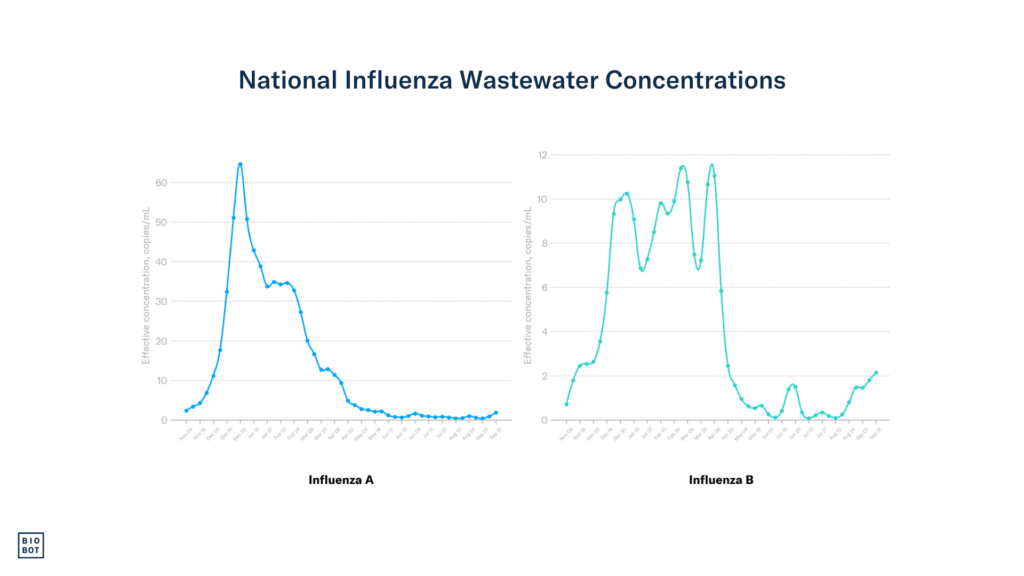
RSV
Nationally, RSV concentrations remained low in week 38 but have slightly increased in recent weeks.
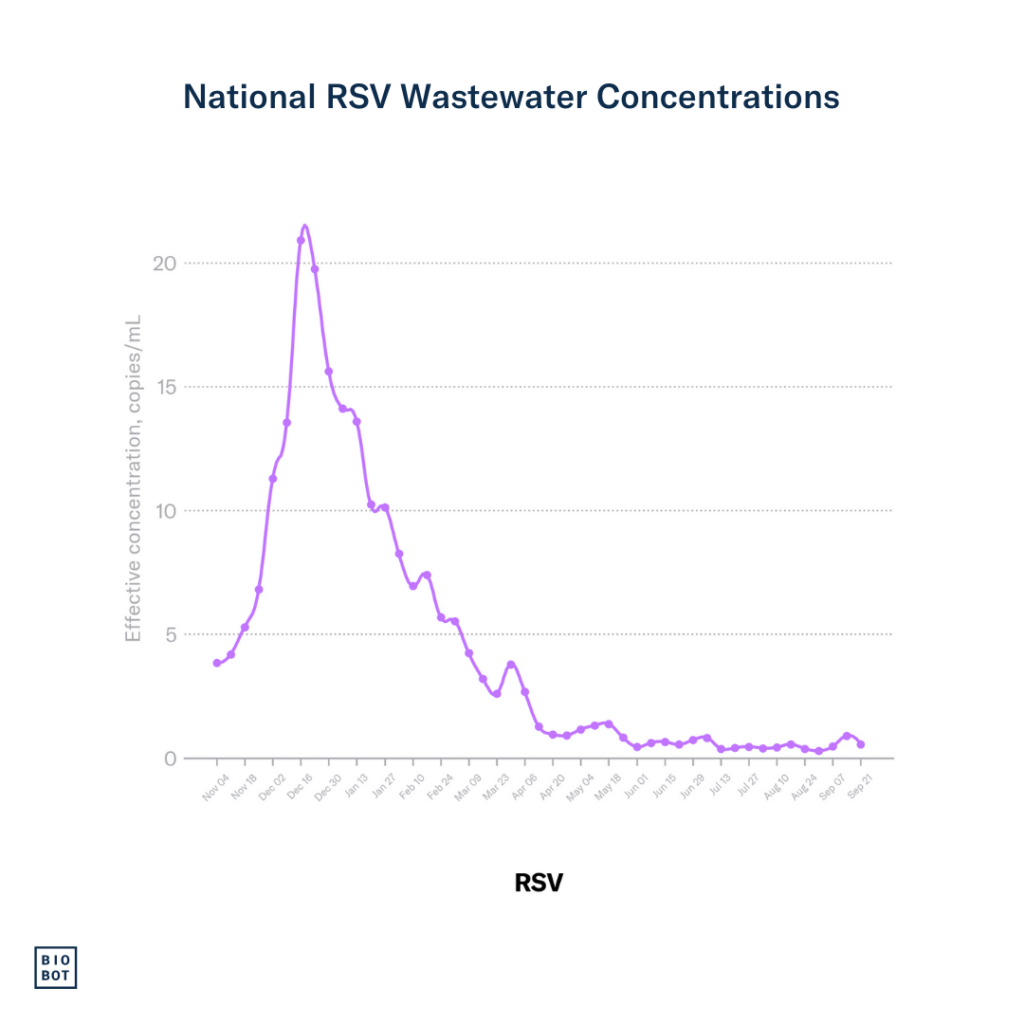
Regional
The South
COVID-19: SARS-CoV-2 wastewater concentrations in the South have peaked and are decreasing, though they remain quite elevated.
Influenza: Influenza A concentrations are low in the South, while influenza B concentrations are elevated. Thankfully, influenza hospitalization rates in the South remain very low.
RSV: RSV wastewater concentrations remain low in the South.
The Midwest
COVID-19: SARS-CoV-2 wastewater concentrations have peaked in the Midwest and are decreasing, though they are still quite high.
Influenza: Influenza A and B concentrations have recently increased in the Midwest, but are still at low levels.
RSV: RSV wastewater concentrations low in the Midwest, but are starting to show some hints of increasing activity.
The Northeast
COVID-19: SARS-Cov-2 concentrations have continued to increase in the Northeast and are still quite elevated. This trend is also reflected in hospitalizations — rates in both Connecticut and New York increased through week 37.
Influenza: Influenza A concentrations remain low in the Northeast, while influenza B concentrations have recently increased. Thankfully, influenza hospitalization rates remain very low in the Northeast.
RSV: RSV wastewater concentrations remain very low in the Northeast.
The West
COVID-19: SARS-CoV-2 concentrations are elevated but declining in the West.
Influenza: Influenza A and B concentrations remain very low in the West.
RSV: RSV wastewater concentrations remain very low in the West.
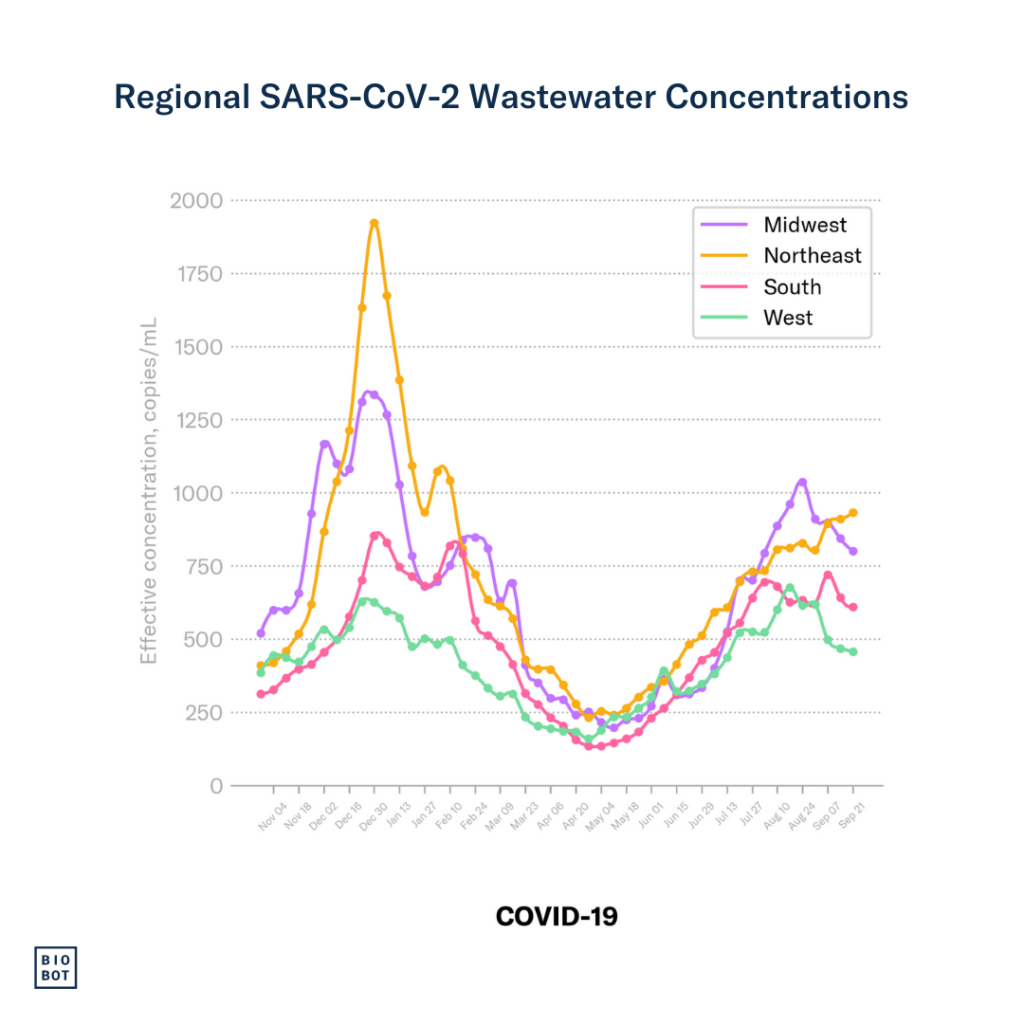
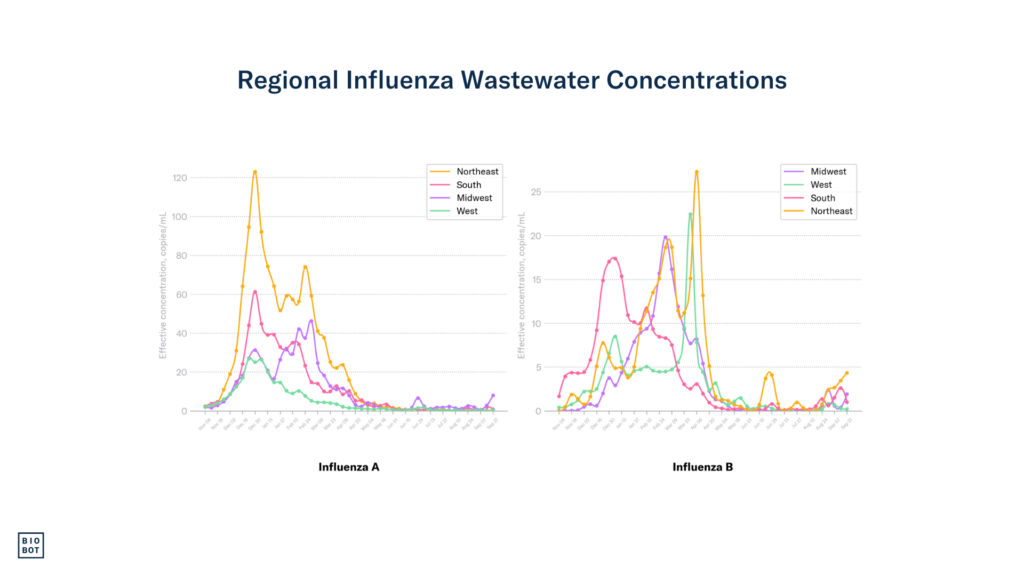
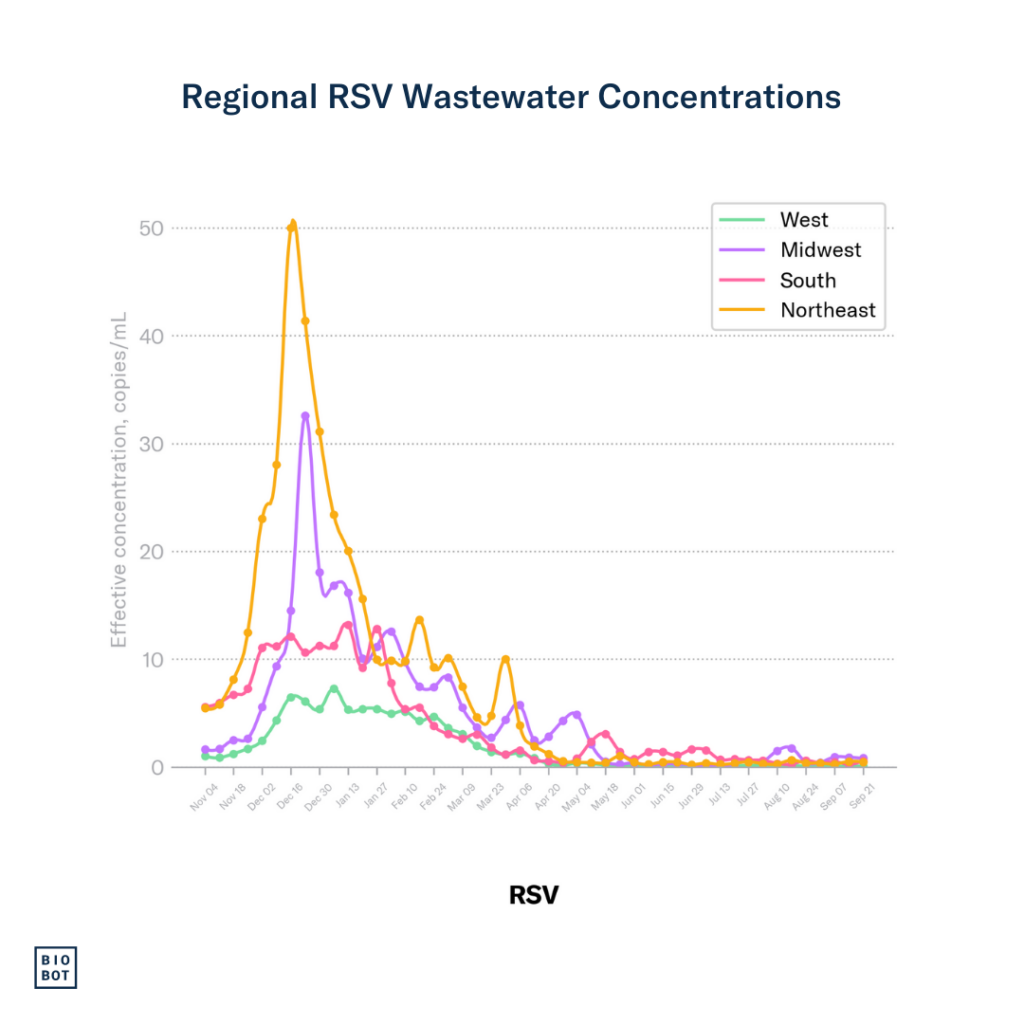
Footnotes:
We continue to monitor the evolving H5N1 influenza virus situation. As we do, a quick reminder that Biobot’s influenza A assay detects the H5N1 influenza subtype, which is an influenza A virus, but does not distinguish between the different subtypes of influenza A (e.g. H5N1 vs H1N1). Thankfully, we still have not seen large, widespread increases in influenza A concentrations. We will share any important updates via Twitter and in the risk reports.
Wastewater data from Biobot Analytics for RSV, influenza, and SARS-CoV-2 are through September 21, 2024 (MMWR week 38). Clinical data for RSV, influenza, and COVID-19 are from the Centers for Disease Control and Prevention. Updates to clinical data are through September 14, 2024 (MMWR week 37).




